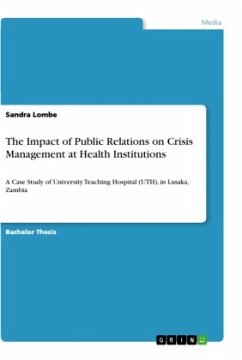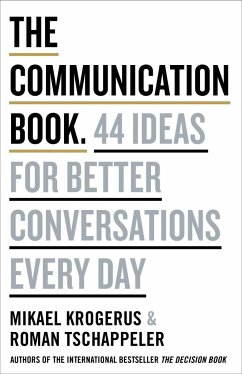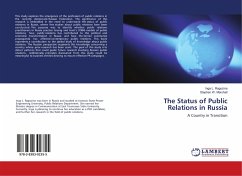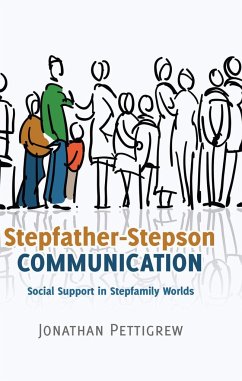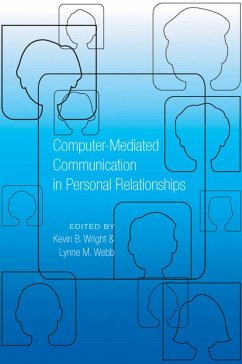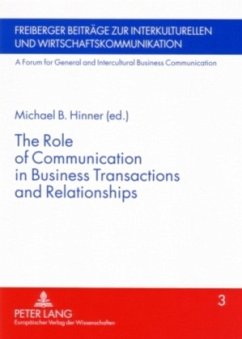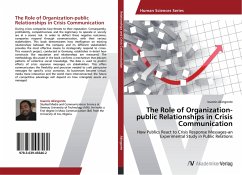
The Role of Organization-public Relationships in Crisis Communication
How Publics React to Crisis Response Messages-an Experimental Study in Public Relations
Versandkostenfrei!
Versandfertig in 6-10 Tagen
27,99 €
inkl. MwSt.

PAYBACK Punkte
14 °P sammeln!
During crises companies face threats to their reputation. Consequently, profitability, competitiveness and the legitimacy to operate in society are at a severe risk. In order to deflect these negative outcomes, companies respond through communication, with their various stakeholders. This book demonstrates how intelligence on existing relationships between the company and its different stakeholders provides the most effective means to strategically respond to crises. This research project, conducted in Germany, establishes in detail how constructs like reputation and relationships are measured...
During crises companies face threats to their reputation. Consequently, profitability, competitiveness and the legitimacy to operate in society are at a severe risk. In order to deflect these negative outcomes, companies respond through communication, with their various stakeholders. This book demonstrates how intelligence on existing relationships between the company and its different stakeholders provides the most effective means to strategically respond to crises. This research project, conducted in Germany, establishes in detail how constructs like reputation and relationships are measured. The methodology discussed in the book confirms a mechanism that extracts patterns of collective social knowledge. The data is used to predict effects of crisis response messages on stakeholders. This offers communicators the flexibility and precision needed to craft persuasive messages for specific crisis scenarios. As businesses become virtual, media more interactive and the world more interconnected, the future of competitive advantage will depend on how intangible assets are managed.




